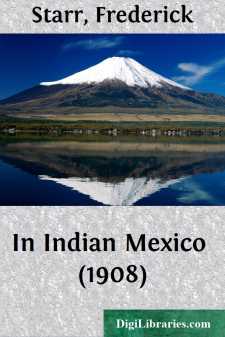Categories
- Antiques & Collectibles 13
- Architecture 36
- Art 48
- Bibles 22
- Biography & Autobiography 813
- Body, Mind & Spirit 142
- Business & Economics 28
- Children's Books 15
- Children's Fiction 12
- Computers 4
- Cooking 94
- Crafts & Hobbies 4
- Drama 346
- Education 46
- Family & Relationships 57
- Fiction 11829
- Games 19
- Gardening 17
- Health & Fitness 34
- History 1377
- House & Home 1
- Humor 147
- Juvenile Fiction 1873
- Juvenile Nonfiction 202
- Language Arts & Disciplines 88
- Law 16
- Literary Collections 686
- Literary Criticism 179
- Mathematics 13
- Medical 41
- Music 40
- Nature 179
- Non-Classifiable 1768
- Performing Arts 7
- Periodicals 1453
- Philosophy 64
- Photography 2
- Poetry 896
- Political Science 203
- Psychology 42
- Reference 154
- Religion 513
- Science 126
- Self-Help 84
- Social Science 81
- Sports & Recreation 34
- Study Aids 3
- Technology & Engineering 59
- Transportation 23
- Travel 463
- True Crime 29
Frederick Starr
Frederick Starr (1858–1933) was an American anthropologist and ethnologist known for his work on the indigenous peoples of Japan, Mexico, and the Congo. He was a professor at the University of Chicago, where he became known for his controversial lectures and unorthodox research methods. Some of his notable works include "Japanese Proverbs and Pictures" and "In Indian Mexico," reflecting his interest in cultural anthropology and ethnography. Starr's extensive travels and fieldwork made him an influential figure in the early study of non-Western cultures.
Author's Books:
Sort by:
by:
Frederick Starr
Introduction Although I had already inquired for them from Ilocano boys, my first actual knowledge of Filipino riddles was due to Mr. George T. Shoens, American teacher among the Bisayans. He had made a collection of some fifty Bisayan riddles and presented a brief paper regarding them at the Anthropological Conference held at Baguio, under my direction, on May 12–14, 1908. My own collection was...
more...
by:
Frederick Starr
CHAPTER I (1895) While we stood in the Puebla station, waiting for the train to be made ready, we noticed a priest, who was buying his ticket at the office. On boarding the train, we saw nothing of him, as he had entered another car. Soon after we started, Herman made his usual trip of inspection through the train, and on his return told me that a learned priest was in the second-class coach, and that...
more...



